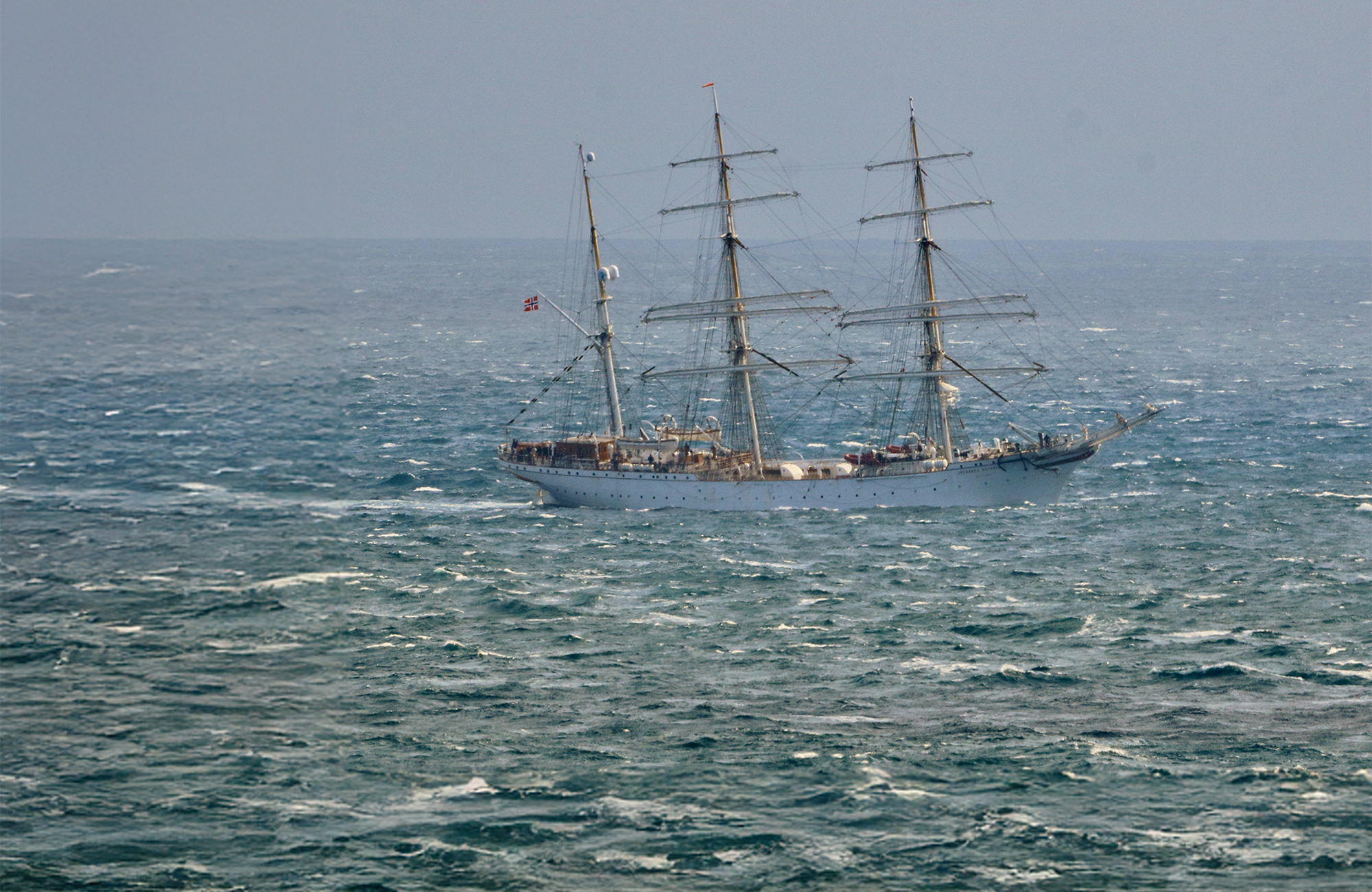Story
Setting Sail for Nice: PML Joins the One Ocean Expedition
22 April 2025
A 111-year-old vessel has been adapted to provide state-of-the-art laboratory facilities.

Statsraad Lehmkuhl by Ronnie Robertson. CC BY-SA 2.0.
Scientists from Plymouth Marine Laboratory (PML) are among those taking part in the One Ocean Expedition, a global initiative dedicated to “creating awareness and sharing knowledge about the ocean’s crucial role in ensuring a sustainable future from a global perspective.”
The historic sailing vessel Statsraad Lehmkuhl has embarked on a new 12-month expedition, departing from Norway, and visiting 26 ports across three continents. One of the highlights of the expedition will be its stop in Nice, France, in time for the 2025 UN Ocean Conference (June 9-13).
PML is represented on this expedition by several scientists, including Dr. Saskia Rühl, a specialist in digital marine biology and machine-learning techniques for data classification. Dr. Rühl will deliver lectures and demonstrations on the biological carbon cycle and plankton/particle imaging methodologies.
Additionally, internationally acclaimed Remote Sensing Scientist, Dr. Shubha Sathyendranath, will participate in the expedition, while PML Director of Science Professor Steve Widdicombe will join for the final leg of the journey into Nice to attend the UN Ocean Conference.
“This expedition represents a unique opportunity to advance ocean science while also raising awareness about the critical importance of our oceans,” said Professor Widdicombe. “We’re very proud to contribute our expertise to this global initiative.”
The expedition will also feature Salma Sheini, supported by the Trevor Platt Foundation, which upholds the legacy of Professor Trevor Platt, a highly renowned oceanographer and PML Fellow who passed away in 2020. Sheini will be conducting plankton sampling throughout the journey.
“I’m very excited to take part in the expedition. It’s unlike anything I’ve done before and I’m looking forward to broadening my knowledge and meeting everyone who is taking part,” she said.
Professor Jamie Shutler, University of Exeter, and Honorary fellow of Plymouth Marine Laboratory has been involved in designing this incredibly forward thinking and advanced teaching programme and cruise – the first marine science research and teaching cruise on a fully science equipped sailing ship. He is teaching the cohort before they embark on the ship in why and how they can study ocean carbon from space. Along with why the exchanges of energy, heat and carbon between the ocean and atmosphere control our climate, and why these processes are key if we want to quantify current and future ocean health. Professor Shutler will also provide the cohort with insights and connections to the European Union funded efforts for monitoring and studying ocean carbon, along with the advances being made within the ocean carbon research that is funded by the European Space Agency and being pioneered by the teams he leads.
The 111-year-old Statsraad Lehmkuhl, which was initially a training vessel for traditional seamanship, has been transformed into a research vessel and floating university. Unlike conventional research vessels, it operates primarily under wind power, resulting in minimal environmental impact while continuously collecting valuable data on ocean health.
As a “floating university”, the vessel creates a unique learning environment in which students, researchers, crew members, and individuals from diverse backgrounds live and work together. Several legs of the journey have been chartered by institutions including the European Space Agency (ESA), UiT The Arctic University of Norway, and the Bjerknes Centre for Climate Research.
